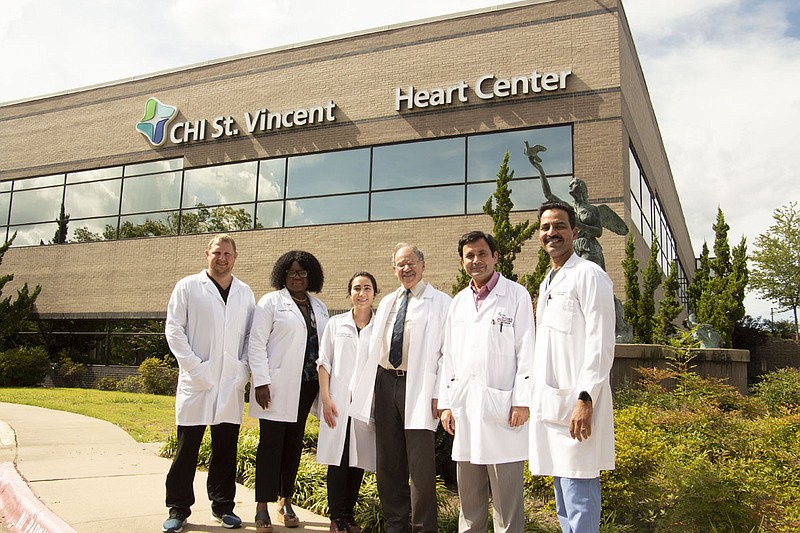CHI St. Vincent Hot Springs recently received two awards recognizing the facility's effective response time and efforts with heart attack and stroke patients, hospital President Dr. Doug Ross said.
The Mission: Lifeline NSTEMI Bronze Receiving Quality Achievement Award was given to the hospital for care given to heart attack patients, and the Get With The Guidelines Target: Stroke Gold Plus Quality Achievement Award was given to the hospital for care given to stroke patients.
The American Heart Association annual awards were presented for the work done by eight cardiologists and five neurologists at CHI St. Vincent Hot Springs over the past year.
Ross said there is a "very stringent" criteria for the awards that ultimately improve the survival of a heart attack or stroke patient through "evidence- and research-based measures."
"Our team(s) looked at all these ... measures and went about implementing them and actually delivering that care to the patients," he said. "So not only does that help us achieve these awards, but at the end of the day the real beneficiary of that is our the patients, because each of these patients now have a better chance of survival from a heart attack (or stroke) than ever before."
In part, the awards were given for the cardiology and neurology teams' timely response procedures for heart attack and stroke patients. Ross said rapid response to these types of patients is "key."
"A heart attack is a blockage in one of the arteries around the heart," he said. "Your heart is a muscle and it needs blood flow and blood supply to it, so if one of those blockages is preventing blood flow to getting to portions of your heart, that heart muscle can die, and that's exactly what a heart attack is, is when the heart muscle dies.
"What we do, is we quickly intervene and get to that blockage, and open up that blockage to allow blood to flow through to these portions of the heart that were being affected.
"The stroke is a very similar process, but instead of it blocking blood flow to the heart, like in a heart attack, a stroke is actually a blockage of blood flow to the brain.
"So it's the same scenario and you want to be able to recognize those stroke symptoms and be able to get in and intervene and open up that blockage in the brain so that the blood flow can adequately flow to the portions of the brain that were affected."
Another part to the receiving of these awards is recognizing symptoms in a timely fashion.
"I'm very, very proud of our staff," Ross said. "Each of these different measures; these awards for stroke and for heart; we have a core value of excellence at the hospital, and our teams are not just settling for basic care; they are striving for higher standards of care, and that's exactly what these awards are.
"These are higher standards of care for the stroke and the heart attack patient, and by us achieving these higher standards of care, ultimately our patients are the beneficiaries and are having better outcomes because of that."
